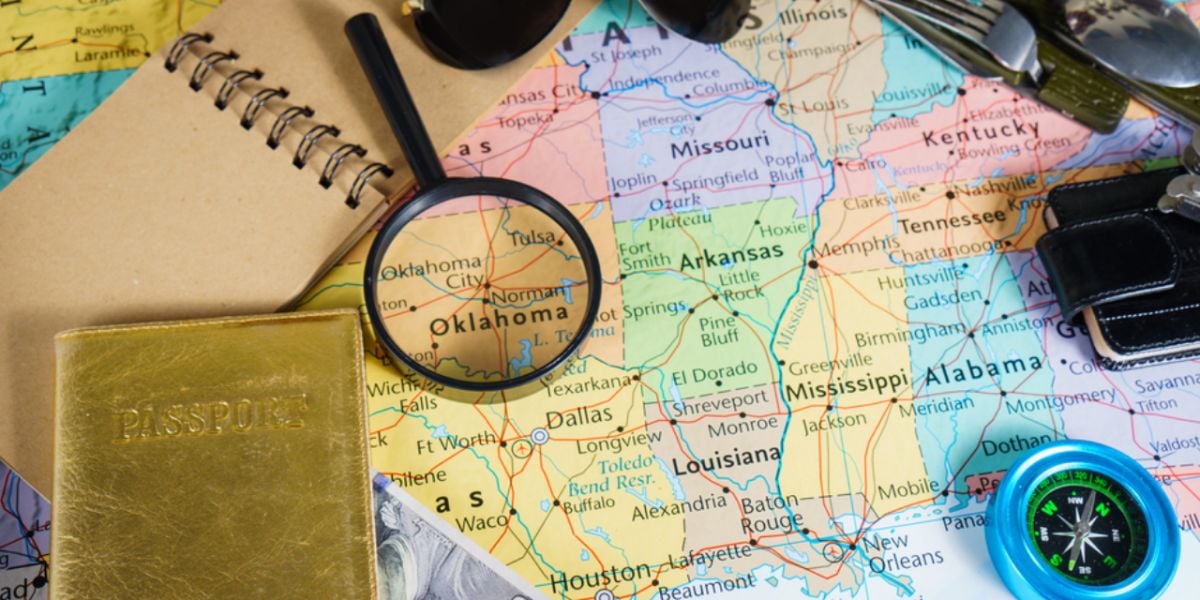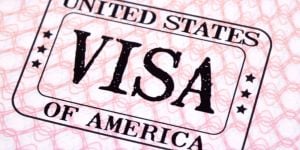
If you're planning to travel to the United States for the first time, you should know several important things about entry requirements and the travel process. Although requirements may differ depending on where you are traveling from and what kind of passport you hold, we've collected some information to ensure your arrival in the USA is as smooth as possible.

Valid passport for the US
It goes without saying, but please ensure you have a valid passport from your home country. The passport should be valid for at least six months beyond your intended stay in the US. It must also display your current name and be in an undamaged condition. It's easy to overlook when your passport expires, so double-check your documents and ensure they are all in order. Getting a new passport can be a long process in many countries, so if you must order one, apply for it well in advance.
Visa Waiver Program for the US
Anyone visiting the United States should research the entry requirements well before the travel date. Passport holders from EU countries and other countries, such as Australia, South Korea, New Zealand, Japan, and others, are eligible for a visa waiver for a stay of up to 90 days. Travelers from all other countries must apply for and obtain a tourist visa to enter the US.
Though the visa waiver makes life easy, you must apply for an Electronic System for Travel Authorization (ESTA) online before your trip. Travelers must now apply for ESTA at least 72 hours in advance due to stricter enforcement. The ESTA must be approved before you board your flight to the US. The US Visa Waiver Program applies to nationals of 42 countries. Once approved for an ESTA, travelers will be granted entry into the US for a business or tourist stay of up to 90 days. Visitors may apply for their ESTA approval as soon as they begin planning a trip and up to 72 hours before their flight.
Important:
All ESTA applicants must now have a biometric (machine-readable) e-passport with a digital photograph, and each application must pass a Customs and Border Protection screening process.
Once the application form is submitted online, the system will generate a response almost instantly. A visa application should be filed at the nearest American consulate or embassy if authorization is refused. The final response should be sent within 72 hours if an answer is pending. Any applicant can monitor the progress of their file on the ESTA website.
Good to know:
Visa exemption applies for citizens from the following countries: Andorra, Australia, Austria, Belgium, Brunei, Chile, Croatia, Czech Republic, Denmark, Estonia, Finland, France, Germany, Greece, Hungary, Iceland, Ireland, Italy, Japan, Korea, Latvia, Liechtenstein, Lithuania, Luxembourg, Malta, Monaco, Netherlands, New Zealand, Norway, Poland, Portugal, San Marino, Singapore, Slovakia, Slovenia, Spain, Sweden, Switzerland, Taiwan*, and the United Kingdom*.
Taiwanese applicants must hold a passport with a personal identification number. UK applicants must have the right of abode in the United Kingdom. Romania was designated for inclusion in 2025 but was removed from the program in May 2025 due to U.S. security concerns, and is not currently eligible.
Visa requirements for the USA
If your country is not eligible for the Visa Waiver Program or if you plan to stay in the US for longer than 90 days, you will need to apply for a visa. The type of visa you need depends on the purpose of your visit, such as tourism, work, or study, or perhaps you are planning to move to the USA with an American partner. Checking the specific visa requirements and applying well before your trip is essential.
Non-immigrant visa
For those considering a short-term visit to the USA (six months or less), the most suitable visa would be a non-immigrant visa. This process usually begins online and generally involves an in-person visit to a United States embassy or consulate in your home country. Temporary visitors for business reasons should apply for a B-1 visa (a business visa) and all others for a B-2 type visa (a tourist visa). All applicants are required to have a passport valid for at least six months beyond the period of stay, a non-immigrant visa application (Form DS-160), a passport-sized photo according to US requirements, and pay a $185 application fee. Applicants must also schedule and attend a visa interview at the US embassy or consulate in the country of application. At this appointment, a consular officer will tell you if additional documents are required, if your visa has been approved, and how your passport will be returned.
Good to know:
Currently, the barcode on your DS-160 form must match the one used when scheduling your visa interview. A mismatch in these numbers can result in needing to restart your entire application process.
Interview Waiver Update:
Applicants may now qualify for an interview waiver only if renewing a visa within 12 months of expiration. If your previous visa expired more than 12 months ago or you're a first-time applicant, an in-person interview is now mandatory.
Long-term visa options
If you are planning to emigrate to America on a more permanent basis, there is a range of visa options available to you, all with their own requirements and time frames. Visa options include family-based visas for spouses, immediate relatives, or certain family members; employment-based visas for individuals with job offers or exceptional skills; the Diversity Visa Lottery for individuals from countries with low immigration rates; investor visas for those making substantial investments, refugee and asylum status for those fleeing persecution, and special immigrant visas for unique circumstances. Each visa category has specific eligibility criteria, and it's advisable to consult with an immigration attorney or the USCIS for detailed information on requirements and procedures.
Obtaining an I-94 in the US
The I-94 is a document that shows your authorized stay and arrival/departure record when entering and leaving the United States. To obtain an I-94, you do not need to take any specific action, as it is generated electronically when you arrive in the United States. The US Customs and Border Protection (CBP) officer creates an electronic I-94 record with information such as your name, passport details, visa status, and authorized period of stay. You can access and print your I-94 record online from the CBP website, which can help verify your immigration status or provide proof of your authorized visit.
Customs, border protection, and duty-free in the US
When you arrive in the US, you will go through customs and immigration at the port of entry. Prepare to present your passport, visa (if applicable), and any supporting documents requested by the CBP officer, such as return tickets, accommodation details, or proof of financial means. Answer the officer's questions truthfully and confidently. The interview can feel nerve-wracking and like you are being interrogated for no reason, but it's usually just part of the protocol.
You should have these details readily available for the officer, and it's wise to carry printed-out documents with you if you are anticipating any issues or just for your peace of mind. The papers could be details of hotel reservations, onward travel, letters of invitation, or confirmation for any activities you will be doing. Above all, you want to make your visit to the USA seem as legitimate as possible.
Customs officers may conduct inspections, review declarations and documents, and ask questions about the purpose of the visit. Biosecurity measures focus on preventing the introduction of pests, diseases, or prohibited items. Depending on where you have come from or what you declare, officers may inspect your luggage and ask about any food, plants, or animal products being brought into the country. It's vital to comply with these procedures and declare any items as required to ensure a smooth entry process. A complete list of what cannot be brought into the USA is available.
When entering the United States, visitors are allowed a duty-free exemption of $800 per person, which applies to gifts, souvenirs, and other personal items. Specific allowances exist for alcohol and tobacco, with one liter of alcohol and up to 200 cigarettes duty-free per eligible individual.
Security checks in the USA
Expect thorough security checks at US airports. US security may differ from what is required in your own country, so always make sure you have checked out the Transportation Security Administration (TSA) guidelines regarding carry-on luggage, liquids, and prohibited items. Be prepared to remove your shoes, belt, and jacket during the screening process. Also, laptops and large electronic devices may need to be removed from your bag and screened separately.
If you want to make this process easy, some tips include keeping your toiletries all in one clear bag, making sure electronics are in locations where they can easily be slipped in and out, and having a dedicated place to keep travel documents. There's nothing worse than getting flustered at the front of the line, with impatient travelers behind you and frustrated TSA officers yelling at you. It's worth wearing slip-on shoes when you travel in the US to make this experience more manageable.
Travel insurance in the US
You must have travel insurance covering all medical expenses, trip cancellations, and any unforeseen emergencies during your stay in the US. There are numerous different providers to choose from, but review your policy to ensure it meets your needs thoroughly. If you intend to do any adventure tourism or other risky activities, ensure these are also covered under the terms of your stay.
Travel considerations under the current Trump administration
If you're planning to travel to the United States, it's really important to be aware of fast-changing immigration policies under the Trump administration. While the basic entry requirements remain unchanged for most travelers and situations, we advise taking extra precautions in terms of making sure documents are in order and checking for current travel advisories.
Heightened risk of entry restrictions
The administration has proposed a tiered approach to new travel bans, which could affect people from up to 43 countries. These may range from complete bans to increased security screening and may be introduced with little advance warning. In some cases, these measures could apply even to travelers who already hold valid visas or green cards. Travelers from countries considered to have limited security or identity verification processes may face delayed entry, questioning, and even removal after arrival.
Increased screening at ports of entry
U.S. Customs and Border Protection (CBP) officers are now conducting more detailed inspections for both visa holders and permanent residents. Travelers should be prepared for the possibility of secondary inspection, more in-depth questioning, and (longer) delays during arrival procedures.
There has also been a rise in electronic device searches. Officers may request to review laptops, phones, and social media activity, so it's a good idea to consider what personal data is accessible on your devices before travel and make sure these items are accessible.
Travelers with gender markers that differ from their appearance or legal documents—such as those with the “X” marker, which is available in some countries—may face increased scrutiny at U.S. ports of entry. Several countries have issued travel advisories warning transgender and non-binary travelers about potential challenges or risks when traveling to the US.
Documentation and re-entry precautions
Ensure you carry original documents, including your passport, visa, approval notices, and supporting materials such as employment or study letters. All of your travel documents should be valid for at least six months beyond your intended return date.
If you have pending immigration applications or documents nearing expiry, it may be safest to delay travel.
Reduced access to humanitarian programs
Recent policy changes have limited access to humanitarian protections, including asylum. Temporary permissions for certain groups like DACA recipients (Dreamers), TPS holders, and humanitarian parolees (including those from Ukraine, Afghanistan, Haiti, and Venezuela) are under review.
Expanded enforcement measures
Immigration enforcement has also intensified, with a rise in the use of expedited removal as well as closer cooperation between federal authorities and local law enforcement.
Important:
In the current climate, immigration policies are changing rapidly. New executive actions may be implemented with little notice. Before making any travel plans, please check official government sources such as the Department of Homeland Security (DHS), U.S. embassies, or Customs and Border Protection (CBP). If you are uncertain about your status or documents, it's best to seek advice from a qualified immigration professional and contact the US consulate in your own country.
We do our best to provide accurate and up to date information. However, if you have noticed any inaccuracies in this article, please let us know in the comments section below.








